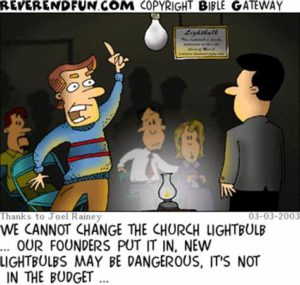Every Generation Matters
Every Generation Matters
Do you genuinely love and have a deep, affectionate care towards every generation in your church? In a world of target groups, demographic information, and “projected growth rates,” it can be tempting to gear your ministry and activity towards a specific generation and fail to honor others.
In a Replant or Revitalization every generation matters and has a vital role in the local church’s life. Some have a tendency to adopt ministry approaches that are only geared toward the next generation of children, students, or young adults. The older generation starts to feel a bit…shoved out the door. On the opposite side is a tendency to only cater to the older generation for fear of your faithful few leaving and causing a stir after being long-time members. After all, they’ve contributed to the church much longer, right?
As a Replant leader, you must have an affinity for reaching multiple generations to connect with all age groups and ensure they are loved, valued, and heard. Multi-generational ministry is essential because that’s the picture of the gospel-centered community we see in Christ. And Jesus Christ said, “I will build MY church…” Salvation is not age-limited, and healthy churches should do all they can to focus on ministering to every age group of believers.
A Mosaic of God’s Grace
Multi-generational ministry shows a beautiful mosaic of God’s divine grace in the makeup of a local church. Some people come to Christ at eight years old, some in their twenties, and some in their late 80s. The drawing and convicting work of the Holy Spirit is no respecter of persons, and the salvation that God brings can come at any age in which someone repents and believes in Jesus Christ for salvation.(Thank God!!)
In the biblical community, the local church comprises vast differences in age groups but with the same common denominator: The gospel. Paul didn’t preach differently towards differing people; he said, “We preach Christ and him crucified.” In Galatians 3:28, Paul explains that we are all one in Christ. This beautiful text shows that those who do not support multiple generations of focused ministry do not truly understand the gospel.
The gospel unites a church behind the banner of Christ regardless of age, ethnicity, socio-economic condition, or anything else.
Holistic Discipleship and Biblical Instruction
In the epistles, age groups have different roles. In Titus 2:3-5, older women are taught to instruct and disciple younger women to care for their families and grow in their godliness and calling. In Titus 2:2, Older men are advised to be sober-minded, dignified in every way, and to lead in holiness. Younger men and women are taught to listen to and submit to their elders and are instructed to serve with passion and zeal.
You see, if we want to express the biblical community modeled in the New Testament and taught in the Epistles, we must seek to reach every generation with the gospel and encourage them in different service areas of the church. If we want to do discipleship in the most holistic way possible, it takes every generation playing their part.
Build Bridges, Not Barriers
If you want to build bridges between different age groups, one of the worst things you can do is separate your people at every possible moment. That means having various worship services that target different age groups, having only age-specific discipleship groups, and misplacing expectations on specific age groups without considering the others.
 Instead, we must seek out ways to build bridges between generations. Don’t focus on worship being too “young” or “old.” Just practice biblically sound worship. Look for ways to fellowship with one another outside of regular church practice. Create opportunities for younger men and women to be poured into by the older generation.
Instead, we must seek out ways to build bridges between generations. Don’t focus on worship being too “young” or “old.” Just practice biblically sound worship. Look for ways to fellowship with one another outside of regular church practice. Create opportunities for younger men and women to be poured into by the older generation.
Every generation has strengths and weaknesses. Celebrate and utilize their strengths instead of complaining about a group’s shortcomings. A good leader will look past the imperfections, celebrate spiritual gifts, and employ them when possible. It helps to eliminate preconceived notions about a specific generation and focus on ministering to them. As you pour into them, you’ll likely be surprised at their growth and openness.
Outdo One Another in Showing Honor
When you target preaching on inter-generational relationships, it can be a beautiful picture of discipleship.
We often equate longevity to spiritual maturity. But this is not always the case. Are older generations not receptive to change? No, we need to get rid of our preconceived notions. Some of the older generation have seen enough of the hardship in their church that they may be willing to try anything to see their church grow as it once did.
Scripture commands us to outdo one another in showing honor. Scripture commands us to die to ourselves. Scripture commands us to humble ourselves. Scripture commands us to love one another. If you want to build relationships between generations, start with scripture. God’s word has an answer to everything pertaining to life and godliness.
In some encouraging words from Jimbo and Bob, they said, “Pastor the people God has called you to, not the one you want to pastor.” Multiple generations is a picture of gospel unity made possible by Christ. Don’t fear the generational gap. Embrace it for the glory of God.















